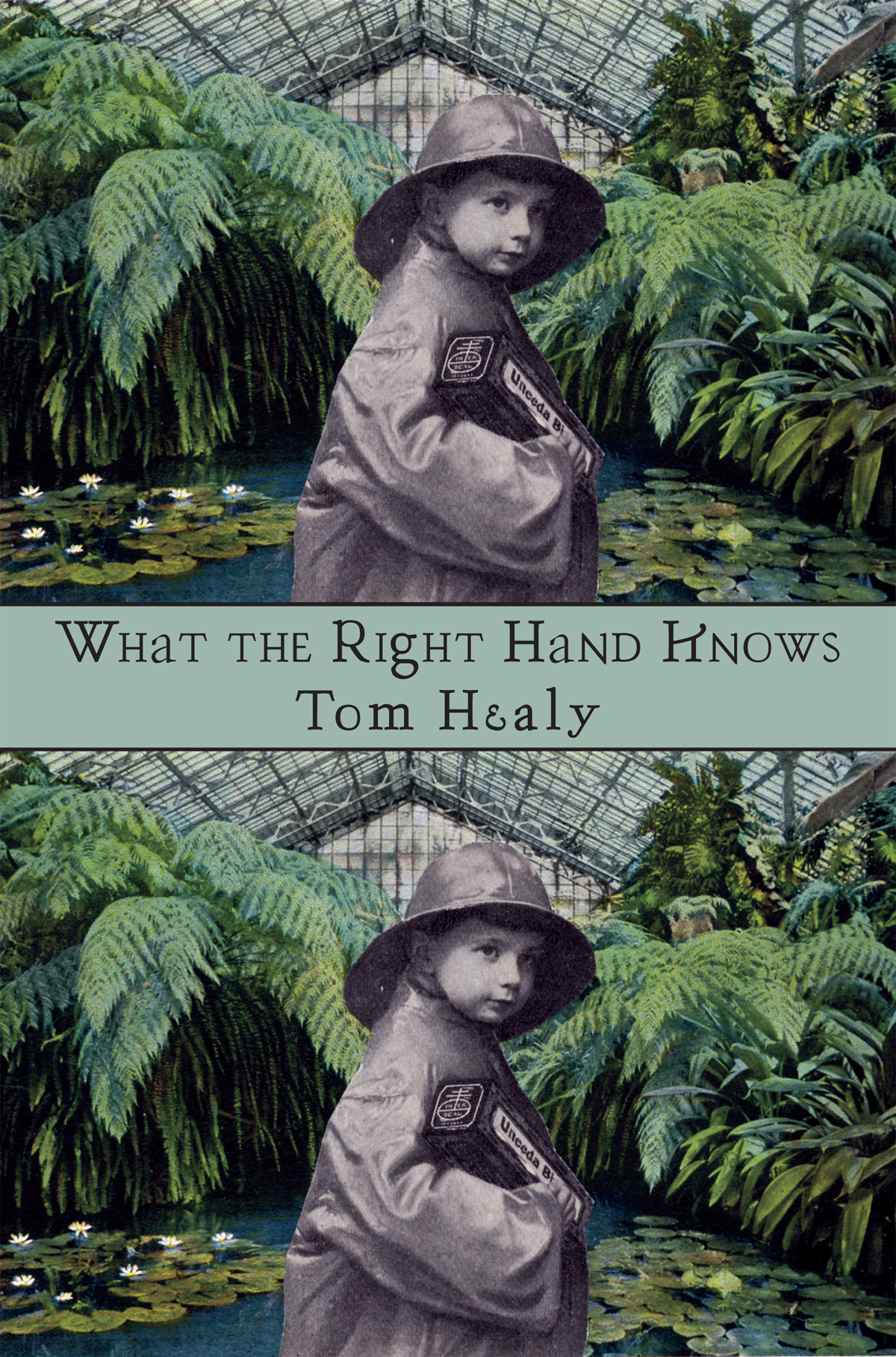
paper • 88 pages • 15.95
ISBN-13: 978-1-884800-95-5
The title of Healy’s sensual, urgent debut collection, What the Right Hand Knows contains an invisible reference to the left hand —the other side of the pair—what does it know? What does it not know? Immediately we are thrust into a teetering, asymmetric world where a speaker, “deaf in one ear,” ponders that “the Moon’s dark side / has no sound.” Elsewhere, another pair, a mother and child finally “take the journey they’d talked about” but it is “a Sunday drive on Tuesday,” a near-miss “only tracing circumferences.” Healy’s poems concern themselves with these and other disappointments as well with the tendernesses of important relationships: what it is that occurs between lovers, parents and children, between past and present, between mind and body.
This is a book of “salt and work,” of survival: surviving ourselves, our illnesses, our language. As a mode of survival, Healy’s poised lines acknowledge and celebrate the “perfect hurt” of a world which repeatedly requires “an act of forbearance,” a chance “we wed / and spend life / thwarting / one another?” Since we cannot avoid “the threads / of this web / waiting” we must persevere, and persevere through language. Emerson, losing his memory, appears in one poem to call out “I need […] what strangers take away,” unable to name “umbrella” and yet, in that forgetting, naming something equally essential for understanding the world. Within this intelligent, lively debut, it is ultimately words that allow us our purchase on the world. Healy’s poems combine the controlled, charged style of C.P. Cavafy with the cosmopolitan verve of Frank O’Hara in a book that is as distinctive for its studied nonchalance as for its unabashed tenderness.
“The View From Here,” from What the Right Hand Knows:
The shape
of astonishment,
forever’s empty frame,
a coin on the tongue,
how our eyes never are.
But relax, love,
into this world we’re finding
and the perfect hurt
of how it turns.
“Laconic yet passionate and sparely personal, the poems in this first book set urbanity and unfolding tragedy in common words and slow-moving, short lines. A gallery owner since the 1990s and a significant figure in New York City’s art scene, Healy unsurprisingly sets some poems there; his real gifts emerge, though, in allegorical or remembered rural locales. In one poem ‘mother and son’ take ‘a Sunday drive on Tuesday’ through the land where they grew up, ‘their remembered selves waving,/ as farmers do.’ The specter of chronic disease, likely HIV, looms over that and other verse (‘Everyone is so involved/ keeping track of my pills’), while the shadow of time passing besets them all; readers who admire Mark Doty may find far more concise versions of Doty’s effects. Healy’s finest moments make him spare, elegiac and wry all at the same time: ‘What do we do when we hate our bodies?/ A good coat helps.’ So often interested in bodies, their pleasures, their troubles, Healy frequently decides that neither poetry nor anything else can console us when bodies don’t work: ‘sleep, vegetables, short walks’ or even poems all seem to lead ‘to the logic of failure,// the panic that mind/ is not enough.’” —Publisher’s Weekly (Nov.)
“The electric immediacy of these poems is an assault on silence, a gunshot fired across the bow of genteel decorous well-mannered lying and silence. At times, but seldom, they give us something sharp-edged but more comfortable (e.g., a portrait of Lauren Bacall choosing fruit). I love how everything here ‘haunts us with choice.’ This is a superb book.” —Frank Bidart
“There is a certain sorcery in this book. The elegantly stoic observations of this poet’s sumptuously tattered life reproach any guess at the speaker’s age. Is it because he has (has always had?) so much conjuration in him that the wisdom seems so ageless, so innocent, in the welter of so much shameless acknowledgment? Well, when was the sibyl ever ashamed? It gives me enormous pleasure as an anything but ageless reader to introduce and to celebrate these vivid poems. The smiles they compel are taut and tight-lipped, but the language conjuring that pleasure is at once sumptuous and cost-effective, precise and loving.” —Richard Howard, from the Introduction
“A wave of spontaneous greeting and implacable fluid motion breaks over these remarkable poems. Stirring up the ironic riptides of Stevie Smith, Vergilian Georgics and Catullus, the wave is revelation: ‘the necessities of rescue and surrender.’ If ‘Pindar said there’d be horses in heaven,’ Tom Healy imagines a flawed paradise here on earth—each poem an earthy lyrical miracle—‘our salt and work—/ the stubborn questions/ we endlessly/ give names to.’ What the Right Hand Knows is, like Giotto’s, a perfect circle, ‘the shape of astonishment.’ This is an utterly brilliant and uncommon first book, a voice like no other.” —Carol Muske-Dukes